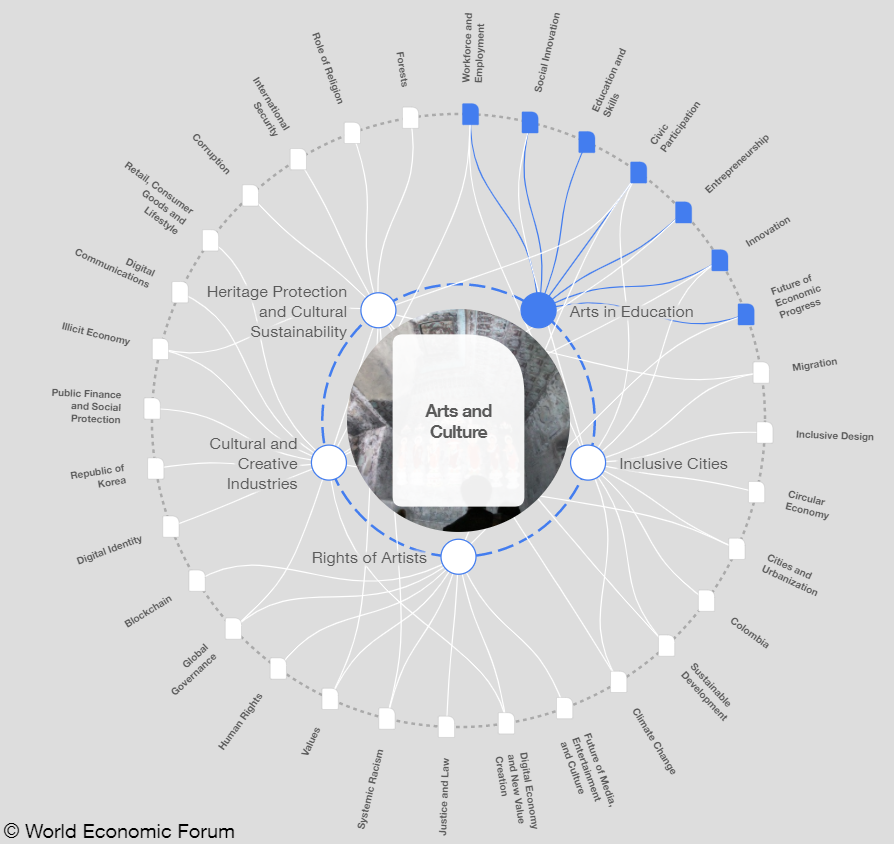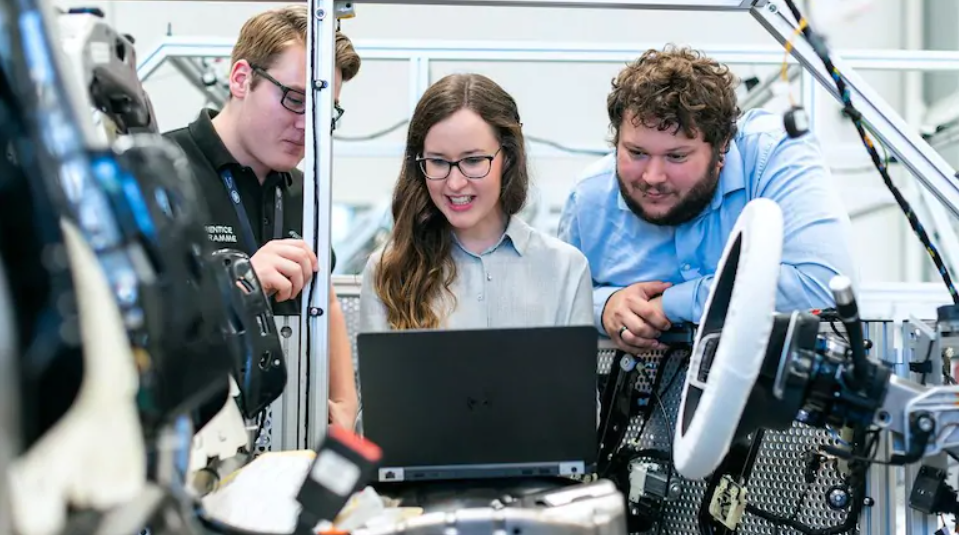Curated by the Knowledge Team of ICS Career GPS
Education

Importance of Arts in Education
Excerpts from article published by Strategic Intelligence, World Economic Forum:
The arts are a fundamental element of a healthy society that help us interpret both the world and one another – particularly during periods when social contact might be limited to faces on a computer screen and streaming entertainment.
Our understanding of the world, in turn, informs our decision-making – which makes the roles of artists critical. The realm of arts and culture cover heritage protection, cultural sustainability, health of cultural and creative industries, inclusiveness of cities, arts education, rights and freedoms of individual artists, and more.
Providing a quality arts education can help students gain skills and attributes that are currently in high demand, such as problem solving, flexibility, persistence and cooperation.
The Arts Council of England published a review in 2014, The Value of Arts and Culture to People and Society, which noted that participation in the arts can reduce social exclusion and strengthen communities. It found that high school students who engage in the arts at school are twice as likely to volunteer in their communities as those who do not.
According to a report commissioned by the Wallace Foundation, a quality arts education can strengthen one’s capacity to think creatively and to make connections – and one’s ability to apply creative thinking can in turn positively impact society.
Adopting creative thinking in the commercial world can lead to positive results. A survey of CEOs published by the consultancy PwC in 2017 showed that 77% found it difficult to find the creativity and innovation skills they need; and, while STEM skills were seen as important, according to the survey, demand for them was outstripped by the desire for “soft” skills including creativity.
A 2016 report by the World Economic Forum counted creativity as one of the top three skills workers would require by 2020. Later, another Forum report, The Future of Jobs and Skills in the Middle East and North Africa, flagged a current deficiency of skills in the region including creativity and independent thinking.
Creative risk-taking and experimentation can aid confidence; increasing students’ capacity for creative thinking is essential to prepare them to take on careers that do not yet exist, and to tackle problems not yet identified.
Funding for arts education around the world has suffered drastic cuts in recent years, and it is often only included as a supplement to other subjects. The STEM to STEAM movement, founded by the Rhode Island School of Design, aims to expand traditional STEM fields (Science, Technology, Engineering and Mathematics) to include Art and Design, in order to enhance innovation.
(This briefing is based on the views of a wide range of experts from the World Economic Forum’s Expert Network and is curated in partnership with multiple contributors from the Smithsonian Institution. To read the full article, visit Arts & Culture)
Career

Why engineering graduates should look beyond IT firms as a career?
Excerpts from article published by India Today Web Desk
Historically, India produces a large number of engineers. Every year, at least 15 lakh engineering students graduate in India from different branches. As per industry estimates, only 2.5 lakh engineering graduates land relevant jobs in technical domains. Of the 2.5 lakhs, 2.2 lakh jobs are in software and most of them are in IT services.
We’re witnessing a rapid digital transformation in all areas with Industry 4.0. Organisations across sectors are transforming themselves by integrating emerging technologies in their varied functions to ease operations and intensify services.
Non-IT sectors including banking, finance, insurance, auto, FMCG, pharma, retail, and many others are gradually exploring the possibilities of these cutting-edge technologies to streamline their operations and promote sustained growth. Even traditional functions such as HR, marketing, sales, and others are also undergoing digital transformation.
These are the hot domains and seek thousands of professionals across sectors. Engineering graduates with skills in AI-ML, Cloud computing, blockchain, and cybersecurity can easily kick start a career in FinTech as well as in EduTech and InsurTech. Nowadays, traditional banks and other financial institutions are also adopting FinTech innovations and investing in FinTech startups.
In a ranking released by Harvard Business Review in 2018, 42 of the top 100 CEOs globally have had an Engineering education.
Demand for data scientists
Companies are now exceedingly incorporating AI-ML, automation, and Big Data to reduce errors in research and development, production, and supply chain. FMCG companies are recruiting data scientists to build strong analytics departments in order to glean the data and analyse it for seamless service as well as predicting customer behaviour for future business.
Pharmaceuticals and biosciences are one of the few industries that have not been affected by the current crisis of the pandemic. Since it caters to customers globally, Indian pharma companies are the most dynamic and have exceptionally high standards.
Though the digital transformation push in the pharma industry started years back, Covid-19 has intensified it threefold. Pharma companies are looking for an agile workforce. From R&D to last-mile connectivity, pharma companies are deploying cutting-edge technologies at every stage.
(Article by Ramesh Kumar, Director – Academics (Consumer Goods & Other Industries), Manipal Global Education Services.)
(Disclaimer: The opinions expressed in the above mentioned articles are those of the authors. They do not purport to reflect the opinions or views of ICS Career GPS or its staff.)
Liked this post? For more such helpful articles, click on the button below and subscribe FREE to our blog.



